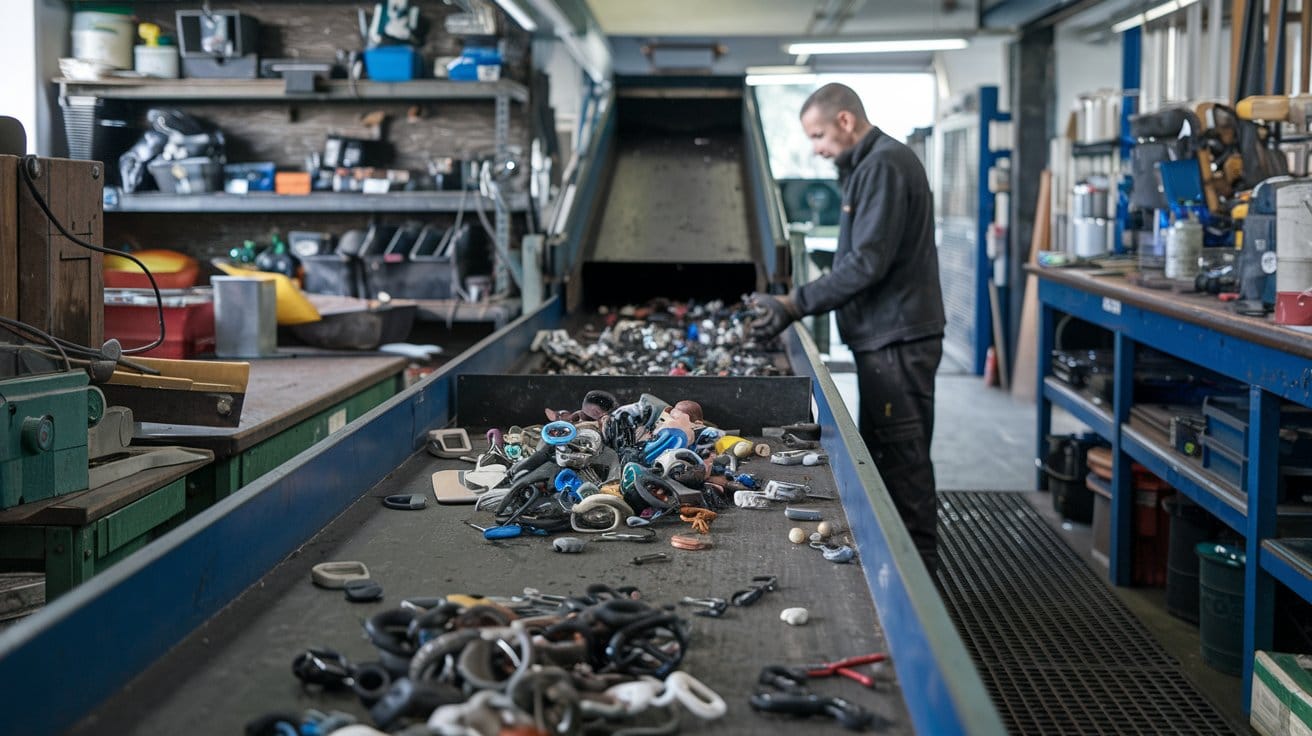Recycling old appliances is a fundamental task to help the environment, and many times we are not fully aware of its importance. In our daily lives, appliances play a crucial role, but what happens when they stop working or become obsolete? The answer is simple: they must be properly recycled. In this article, we’ll explore how you can contribute to caring for the planet through the correct disposal of these devices. So, if you have an old refrigerator, a TV that no longer turns on, or any other appliance you no longer use, keep reading to discover how to recycle old appliances effectively and responsibly.
Why Is It Important to Recycle Old Appliances?
Appliances contain materials that can be both hazardous and valuable. Many components, such as glass, metal, and certain plastics, can be recycled and reused. However, there are also elements that can be harmful to the environment if not handled properly. For example, refrigerants in fridges and chemicals in televisions can contaminate soil and water if disposed of incorrectly.
Benefits of Recycling Appliances
- Waste reduction: Recycling decreases the amount of waste ending up in landfills.
- Resource conservation: Materials and energy are saved by reusing recycled components.
- Pollution prevention: Helps avoid the release of toxic substances into the environment.
- Promotes the circular economy: Encourages a more sustainable production and consumption model.
Steps to Recycle Old Appliances
Recycling old appliances doesn’t have to be complicated. Here are a few steps you can follow to ensure your appliances are recycled properly and responsibly:
- Learn About Local Regulations
Before doing anything, check the recycling rules and programs in your area. Many municipalities have recycling centers or collection points specifically for appliances. Some even schedule special collection dates. Start by checking your city council’s website or contacting your local waste management service. - Prepare the Appliance for Recycling
Once you’ve decided to recycle your old appliance, make sure it’s ready:- Unplug it and place it in an accessible spot.
- Remove accessories that can be recycled separately, such as cords or plastic parts.
- Do a basic cleaning to avoid hygiene issues.
- Find a Suitable Recycling Center
Locate a recycling center that accepts appliances. Some supermarkets and appliance stores have take-back programs where you can return your old device when purchasing a new one. There are also companies specializing in WEEE (Waste Electrical and Electronic Equipment) that manage the collection and recycling of such items. - Consider Donating
If the appliance still works, donating it is another option. Many charities accept appliances in good condition and redistribute them to families in need. Donating not only gives your appliance a second life but also helps someone who may benefit from it.
What Happens to Recycled Appliances?
Once appliances arrive at a recycling center, a careful process begins to separate the materials. Components are sorted into categories such as:
- Metals: Steel, aluminum, and copper are extracted and recycled into new products.
- Plastics: Sorted by type and processed for reuse.
- Glass: Found in certain appliances, such as microwaves, and recycled accordingly.
- Hazardous components: Managed with special care to avoid environmental harm.
FAQs
What appliances can be recycled?
Most appliances, including fridges, washing machines, dryers, microwaves, TVs, and computers, can be recycled. However, always check with your local recycling center to confirm which types they accept.
Is there a cost for recycling appliances?
In many areas, appliance recycling is free. Some stores, however, may charge a fee for collection, especially if you buy a new appliance. Check the policies of the place where you plan to take it.
Can I put appliances in regular trash?
No. Appliances should never be thrown in regular garbage, as they can cause pollution and will not be properly recycled. Always look for recycling or donation options.
What if the appliance doesn’t work?
Even if an appliance no longer works, it should still be taken to a recycling center. They have the resources and expertise to handle its components safely.

